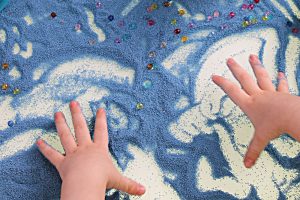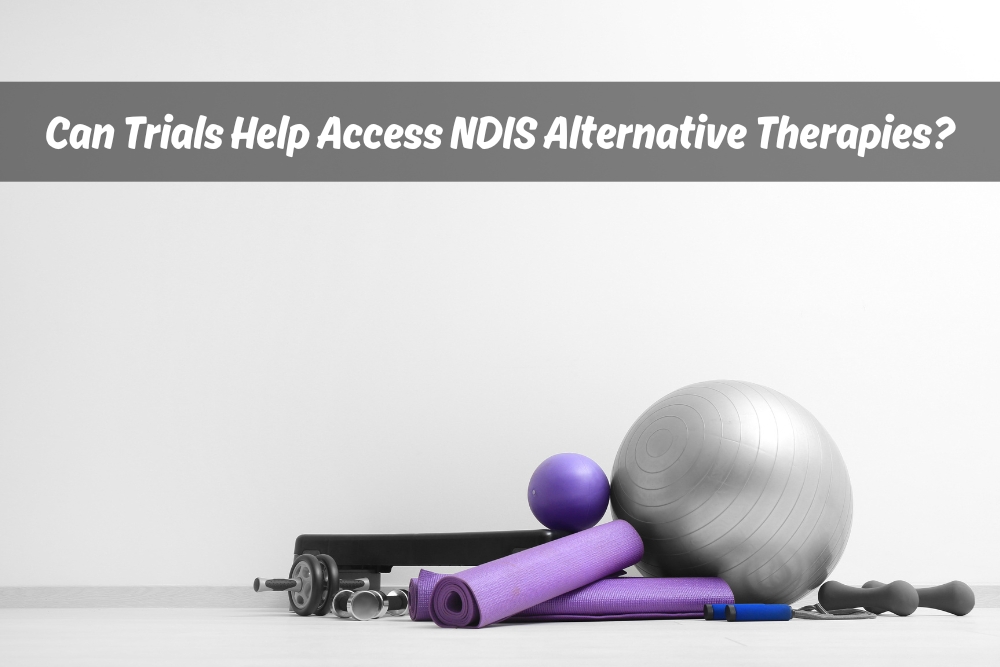It is a game-changer and a huge help for Aussies with the National Disability Insurance Scheme or NDIS program, offering a pathway to essential support. However, there are still instances that can be tricky like navigating system and finding the perfect method of healing. Well, especially when it comes to NDIS alternative therapies (those cool, different approaches that go beyond traditional treatments).
In spite of that, have you ever wondered how to access this kind of program? Run down this information and see if it fits you.
What are NDIS alternative therapies?
These encompass a wide spectrum of healing approaches that complement or work alongside traditional treatments. These can include remedies like:
- Art: Utilising creative expression to improve emotional well-being and communication.
- Music: Using songs to address physical, emotional, and cognitive needs.
- Animal-assisted: Interacting with pets to promote social interaction and emotional support.
- Yoga: Combining physical postures, breathing exercises, and meditation for improved physical and mental health.
- Hydrotherapy: Using water-based exercises for pain management and improved mobility.

Why consider NDIS alternative therapies?
These can be awesome allies in your journey. In addition, these kinds of programs can offer a range of potential benefits for participants, including:
- Addressing specific needs: Target needs are not fully addressed by traditional treatments.
- Promoting holistic well-being: Often focus on physical, emotional, and social aspects of health.
- Improved quality of life: Enhance independence, reduce pain, and promote relaxation.
While traditional remedies are crucial, improving daily living through NDIS trials for alternative therapies offers exciting possibilities to explore innovative approaches that can further empower participants to manage their disabilities and live life to the fullest.
Can trials unlock NDIS funding?
Possibly! With the offer of a potential avenue for accessing different cures, these strategies involve participants trying a specific therapy for a set period to assess its effectiveness in their individual cases.
Can NDIS currently fund alternative therapies?
The short answer is – maybe. They can fund some if they’re deemed necessary and backed by research to help with your specific disability. But always bear in mind that the key word here is “research.” Some methods haven’t gotten the full science spotlight and approval yet, which can make funding a bit tricky and difficult.
Well, there are some considerations, especially on the hinges of evidence-based studies. Understanding the eligibility criteria for NDIS trial programs involving alternative therapies can help you manage your disability.
How do NDIS trial programs work for alternative therapies?
The specifics of these plans can vary, but here’s a general overview:
- Eligibility: Participants must meet specific criteria and have a therapist willing to participate in the trial.
- Approval process: Proposals for cases need to be submitted to the NDIA for evaluation and approval.
- Trial duration: They typically last for a set period. This depends on the data collected to assess the therapy’s impact.
What are the challenges for alternative therapies?
You will encounter a lot of challenges with this approach. Yet, here are some of the main difficulties associated:
- Limited research: Some methods lack extensive scientific research to support their efficacy.
- Cost considerations: The insurance may be hesitant to fund these and deemed overly (or possibly) expensive.
- Individual needs assessment: Securing funding often hinges on demonstrating how the method of healing directly addresses your specific needs.
While these challenges exist, there is still hope! Partnering with a qualified NDIS provider can significantly increase your chances of success.
What’s the upside of participating in an NDIS trial?
Now, on the bright side, participating in a trial for other methods of cure can offer several advantages:
- Access to potentially beneficial therapies: Trials offer a chance to experience a cure that might not be readily available otherwise.
- Contributing to research: Test data helps build the evidence base and potentially paving the way for wider coverage.
- Gathering valuable information: This provides insights into whether the procedure is effective for your specific needs.
Are there any downsides to consider?
Always check and balance, there are always things to reflect upon with these trials. With any intervention, there may be potential drawbacks to observe:
- Limited guarantees: There’s no guarantee that this will be effective in your case.
- Design limitations: These can vary, and some may not be robust enough to provide definitive results.
- Potential costs: This may cover some trial costs; however, participants might be responsible for out-of-pocket expenses, if necessary.
Resources on NDIS trials & alternative therapies
Learning to know more about this kind of program can be beneficial. You need to get some reliable information before you make a decision. For example, searching data on the website (for your funding and programs), checking disability advocacy organisations (for support and advice), and creating your planner (helping you explore other remedies and trial program options) can be useful in your later treatments.

The future of NDIS funding for alternative therapies
Overall, they promise to expand access to other effective remedies, which is a good thing! By providing valuable data on the effectiveness of these cures, trials can influence future financing decisions.
While the landscape can be complex, it’s not insurmountable. With a qualified specialist, you can significantly increase your chances of success. Also, by staying informed and exploring options like trial programs, you can play a role in shaping the future of support and accessing more cures that can enhance your well-being. Consider alternative and standard options to create a well-rounded treatment plan. Remember, the program is constantly evolving, and the potential for wider coverage is a growing conversation.
Let your journey be meaningful!
Feel empowered and supported by access to NDIS alternative therapies with Auburn Health Centre! Our passionate team assists you in navigating the system. We also offer a wide range of treatments and we will help you identify the most suitable programs for your individual needs.
Our priority is also helping you understand the trial programs and providing a holistic approach to your well-being. We integrate traditional and alternative therapies to create a personalised support plan.
Ready to elevate your well-being? Join us, and our specialists can provide expert guidance and support throughout your journey. Talk to our NDIS specialists at Auburn Health Centre today!


